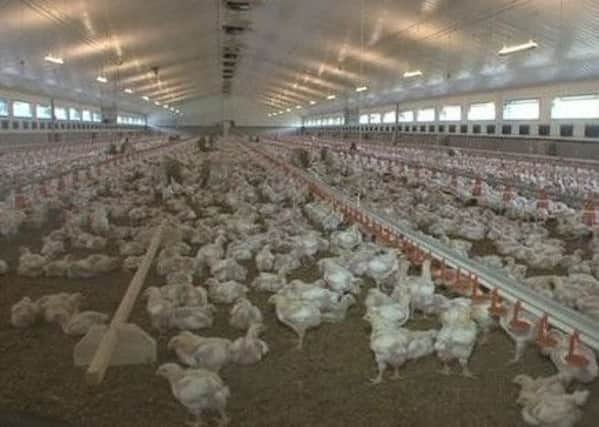Moy Park and Loughry College in flawed '˜cash for ash' scheme


It has also been revealed that Loughry Agricultural College has installed four biomass boilers that are eligible for the scheme.
However, there is no suggestion that the Cookstown college or Moy Park has acted improperly.
Advertisement
Hide AdAdvertisement
Hide AdThe green scheme was set up by the Department of Enterprise, Trade and Investment under the stewardship of now First Minister Arlene Foster in 2012 to encourage businesses and other non-domestic users to move from using fossil fuels to renewable heating systems.
In what has been dubbed the “cash-for-ash” scandal, the flawed scheme meant users could legitimately earn more cash the more fuel they burned.
Moy Park said: “We have been advocating the use of hot water heating systems across our poultry production in England and Northern Ireland for many years.
“These systems produce a dry heat, which creates a healthy environment for the chickens.“
Advertisement
Hide AdAdvertisement
Hide AdWe made two investments in hot water heating, one through the RHI scheme in Great Britain as part of an energy supply contract arrangement and one in Northern Ireland, where we invested in four 199KW boilers under the revised RHI scheme which is tiered and capped, similar to the scheme in GB.”
A DAERA spokesman said: “As part of Government’s drive to reduce greenhouse gas emissions, CAFRE has progressively installed biomass boilers as a key instrument in working towards these targets.
“It has installed nine biomass boilers with six of these eligible for the RHI scheme. All biomass boilers were designed to both ensure optimum heat delivery to the facility combined with efficiency in greenhouse gas reduction.” It has been reported that the six boilers the department claims for under RHI generated an income in the last quarter of almost £2,000. The department spokesman said: “All funds raised by the department are allocated towards the delivery of DAERA public services.”